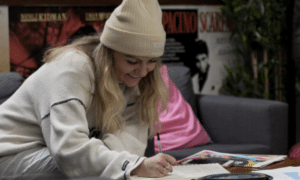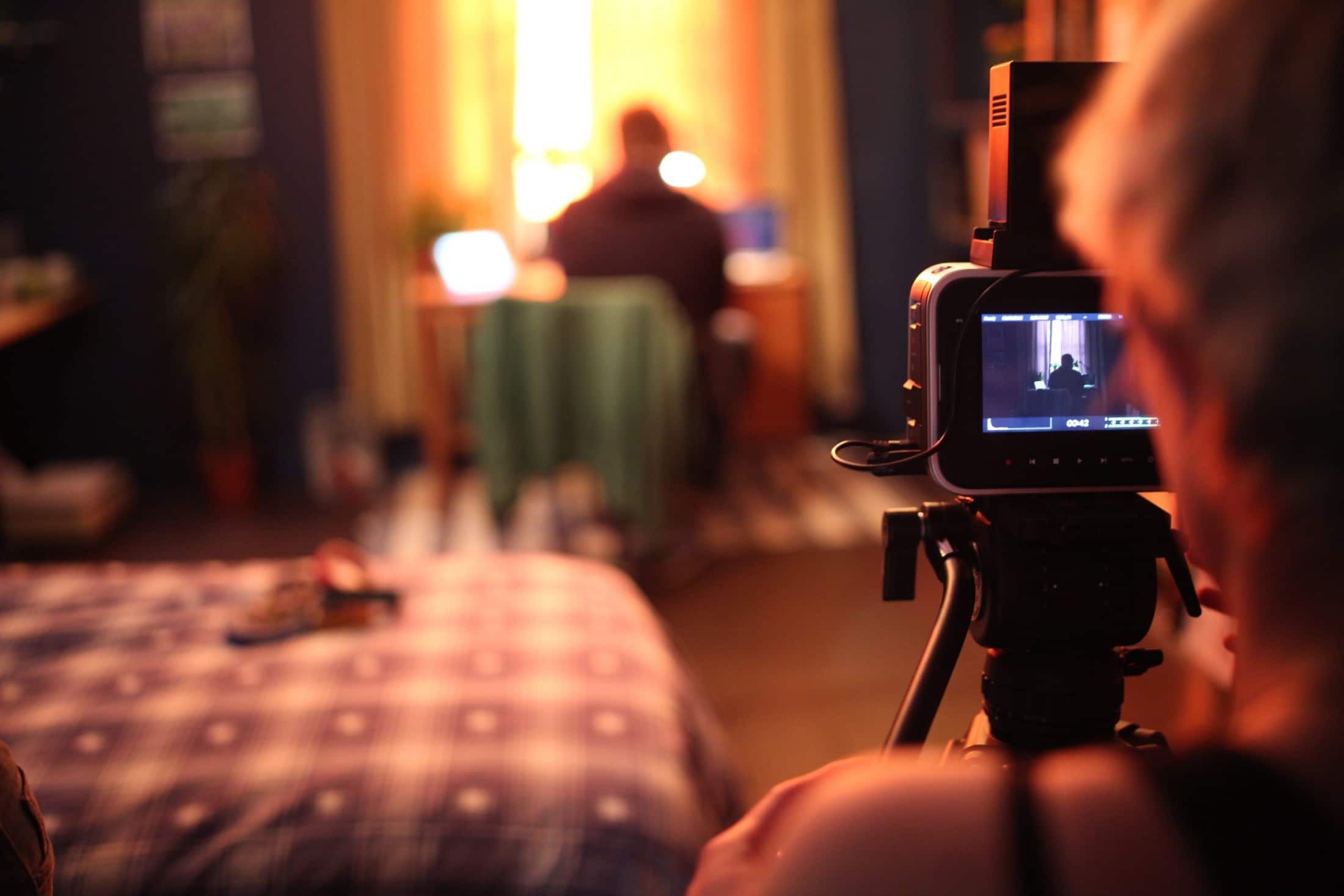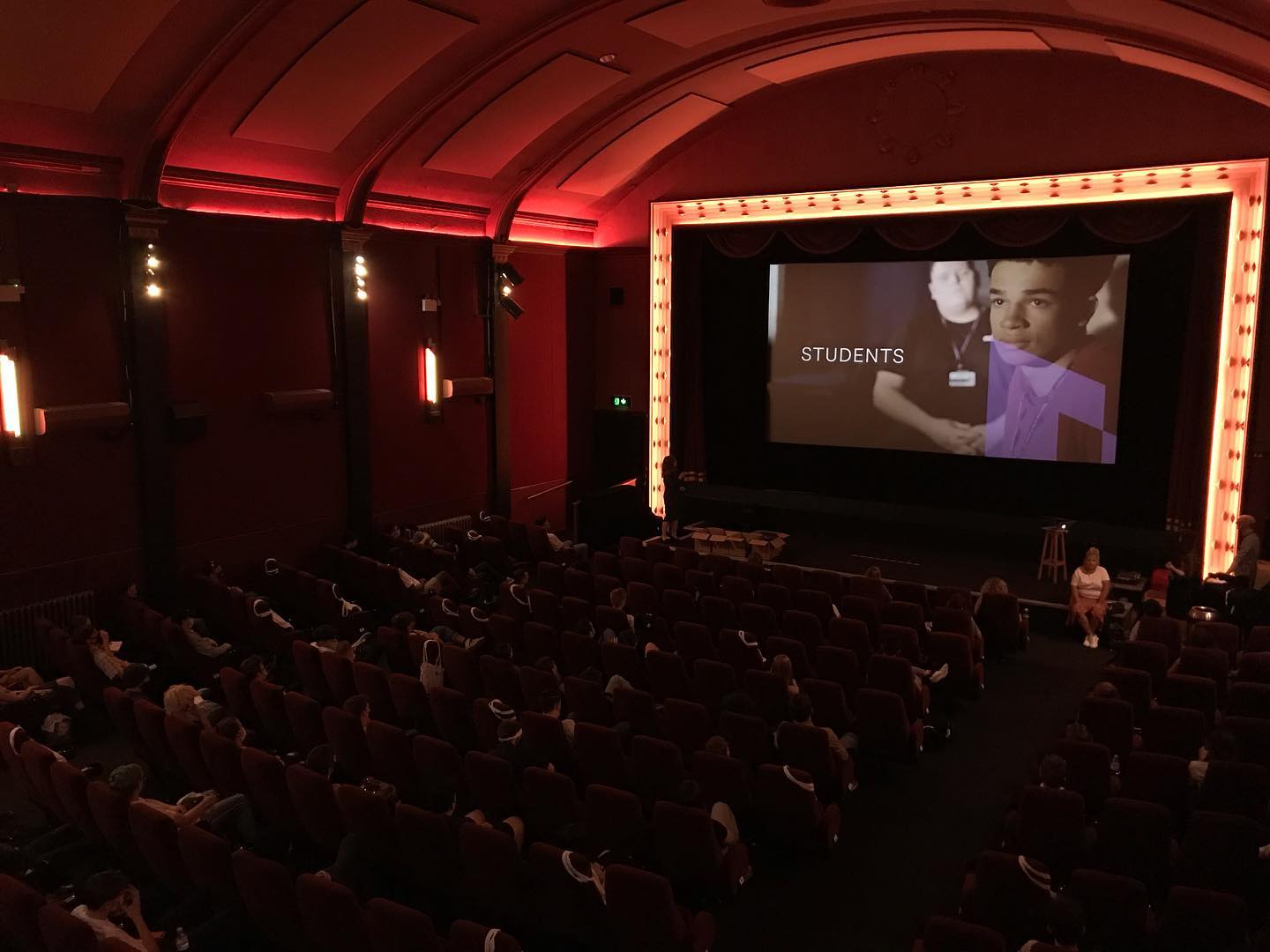Screen and Film School Brighton’s student blogger Ellenor Jenns shares her advice and top tips for putting together a film portfolio.
Prospective students all across the country are readying their portfolios the best that they can; including you!
When I was applying to different universities, I had already had to compile a portfolio for my college interview, so I had the upper hand, but if you’ve never had to create a portfolio before, the idea of starting can be daunting.
Truth be told, it can be difficult to decide what should go into it and how much you should bring to an interview – so here are some tips!

Invest in a memory stick or external hard drive
In order to make sure that you’re able to bring as much material as possible with you to an Applicant Day at Screen and Film School, buying a memory stick or an external hard drive is generally advised.
This is because a lot of the work that you’ll want to bring with you will be in the form of videos. This is to avoid needing to use the computers when you’re there and thus taking up more time trying to access your files – this way you can bring either of those with you, with everything already put onto it so that you can plug it into a computer and show it to the interviewer.
Lower storage options for both memory sticks and external hard drives can be as cheap as £20.00, but most of the time these options only yield storage for the basics, and won’t hold many large files at one time.
For this reason, sometimes it’s better to spend more and get up to 1TB of storage. In your studies at Screen and Film School, you will need to transfer various files for your module work and store them for your own use, so it might be a good idea to bite the bullet and invest in one early on.
Put together a showreel
If you’ve been studying film at A-Level (or the Level 3 equivalent at college), you’ll most likely have at least a few short films under your belt. If this is the case, then putting together a showreel is an amazing idea. For the uninitiated, a showreel is essentially just a short video that spans around two to three minutes and shows off short films (or any kind of video content) you’ve worked on, cut to a piece of music.
Though it may not seem like it will make much of a difference, showreels are an incredibly effective way to show off what you’ve learnt in your studies and demonstrate your enthusiasm in film to whoever interviews you.
The perfect showreel doesn’t exist, and a showreel doesn’t necessarily have to look any certain way. Here are some things to keep in mind, though.
- Choose a piece of music that has a beat you can easily cut to. This can be music you enjoy, or music that you feel fits the theme of all the clips you’re going to be using. My personal favourite artist for their rhythmic discography is M83, and I have used some of their music for showreels I’ve made in the last few years.
- Be selective! The work that you present in your showreel is supposed to be the best of the best from what you’ve made so far – in order to present this effectively, you need to be more selective with how much you add. Too much may mean that some of what you add is lacking in quality and brings the overall quality of the showreel down, and too little means that anyone interviewing you may not have a clear idea of your level of practical knowledge, and by extension also your strengths and weaknesses. Don’t hold onto clips that serve no purpose or are from early in your time making content, and instead focus on showcasing clips that will really wow whoever interviews you and prove how dedicated, passionate and willing to learn you are.

Keep a folder of written work, and bring it with you on your Applicant Day
Even with the rise of online scriptwriting tools, productivity apps and general film-related resources – taking a folder of written work will always impress an interviewer.
Of course, this work can have been done online and just printed out. This along with a showreel and/or standalone copies of films you’ve made can demonstrate to any interviewer that you have some understanding of industry practice and what undertaking a role may involve.
For aspiring directors, producers, editors or writers (for example), this can be shooting scripts, call sheets, transcripts of interviews/dialogue, and screenplays that you have created.
Interviewers will most likely ask about the process for creating any of these – things like your inspirations and questions similar in nature, and it may lead to you speaking about/showing your showreel, especially if some of the written work is based on what you have included in your showreel.

Keep a copy of some standalone short films you’ve made
At Screen and Film School, staff are passionate about filmmaking, and films. As such, they love talking about films and the making of them – if you find that your interview is going well and whoever interviews you is interested in a particular film you’ve made in its entirety, it never hurts to offer to show them the entire film if you have it with you.
You may not even end up mentioning them, but choosing a few short films you’re most proud of and popping them onto your hard drive or memory stick is definitely worth the extra work.
So.. what’s next?
After you’ve put your portfolio together, you’re one step closer to becoming a student at Screen and Film School.
The process of applying to universities and getting universities is a very long one, and sometimes it may feel like too much pressure to handle. The important thing to remember is that everyone feels the pressure and that at the end of it, you’ll be glad you did it.
In times of stress, remember that you’re allowed to feel the way you do. The fact that you’re going to so much effort shows that you’re someone who loves what you do, and it will show in your portfolio review.
Are you ready to tell your story?
Kickstart your career in film today!



